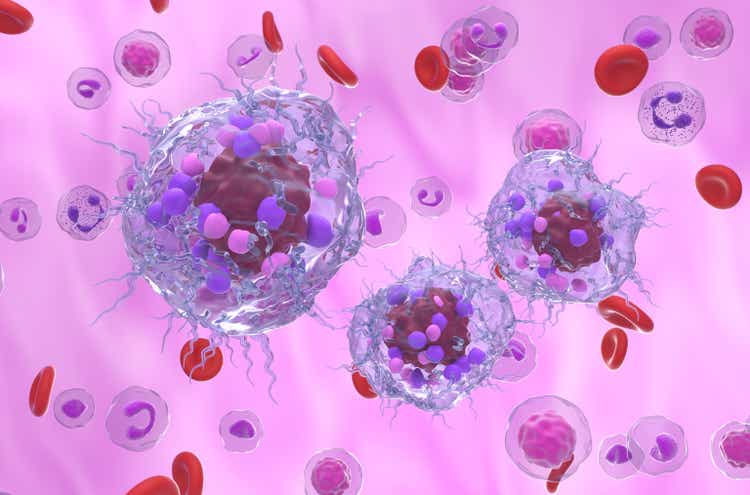
Exelixis ( NASDAQ: EXEL ) has released additional phase 3 data on Cabometyx (cabozantinib) in individuals with pancreatic neuroendocrine tumors (pNET) and with advanced extra-pancreatic neuroendocrine tumors (epNET). Results from the phase 3 CABINET trial, presented at the European Society for Medical Oncology Congress, showed that at a median follow-up of 13.8 months, median progression-free survival in the pNET cohort was 13.
8 months for Cabometyx versus 4.4 months for placebo. In the other cohort, at a median follow-up of 10.

2 months, median PFS was, respectively, 8.4 months and 3.9 months.
Exelixis is pursuing an additional approval for Cabometyx in neuroendocrine tumors. The U.S.
FDA has assigned an action date of April 3, 2025 for the supplemental New Drug Application. In a separate ESMO presentation, Exelixis said that new data from the phase 3 CONTACT-02 trial examining Cabometyx (cabozantinib) in combination with Roche's ( OTCQX:RHHBY ) Tecentriq (atezolizumab) showed that in patients with metastatic castration-resistant prostate cancer, at a median follow-up of 24 months, a numerical but not statistically significant improvement in overall survival favored the combination compared to novel hormonal therapy. OS was one of two primary endpoints.
The company had previously reported that the second endpoint, progression-free survival, was met in a predefined, intent-to-treat population. Exelixis plans to submit an sNDA to the FDA for the prostate cancer indication by the end of the year..












